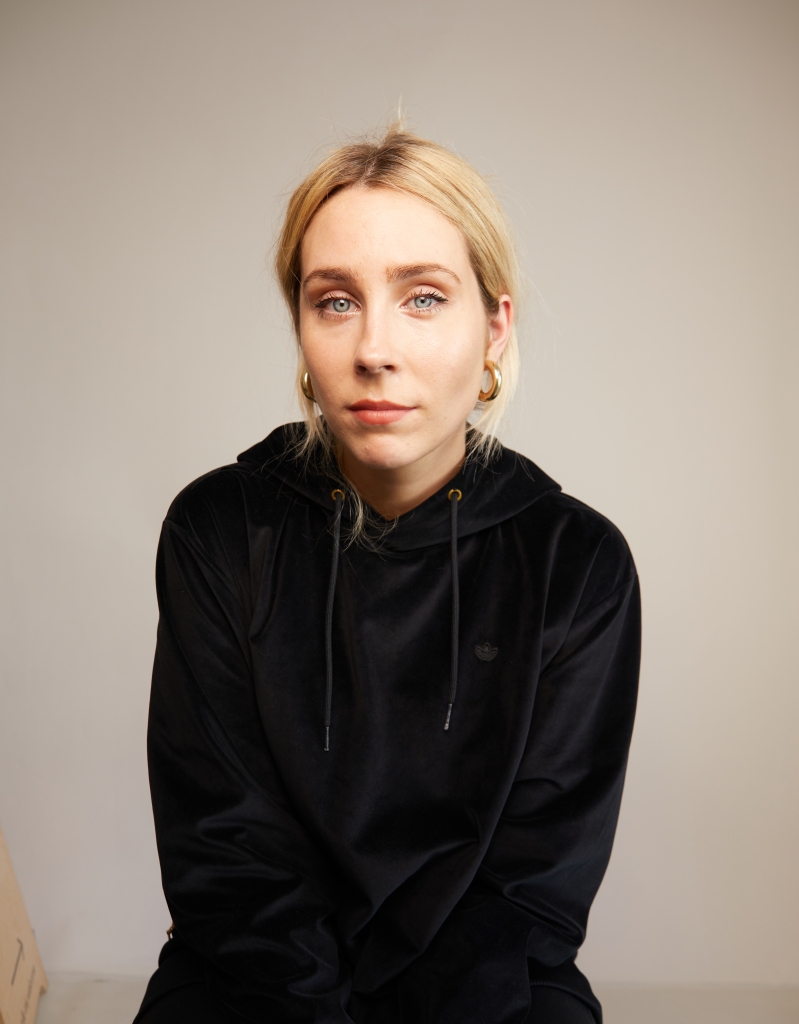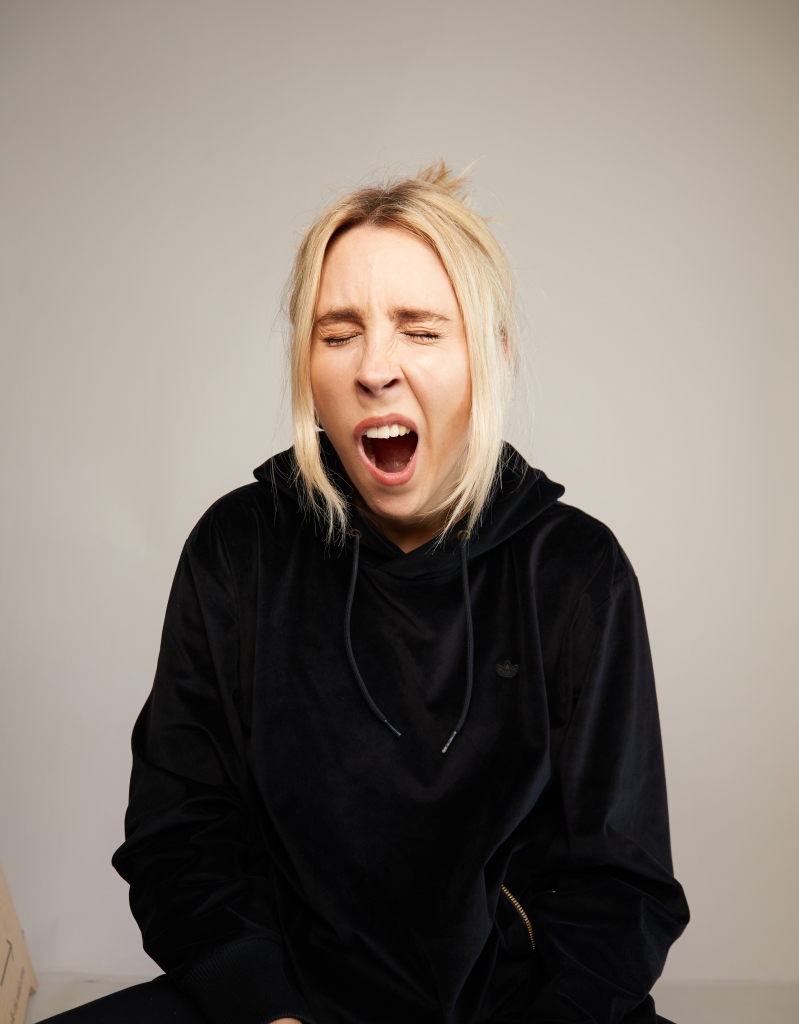Arts and Culture Editor Ollie Cochran talks with John’s alum Stevie Martin about her memories of Durham and her wide-ranging career in the entertainment industry.

I had the pleasure of meeting and chatting to John’s alum Stevie Martin at the Arts, Music and Theatre Formal a couple of weeks ago. The evening was part of the ‘Once a Johnian’ series, where alumni and other guests related to the theme of the evening are invited to share some career advice and meet students who are interested in their particular field.
My first experience of Stevie, as with everyone else attending the formal, was a speech she delivered before the starters were served. In a hilariously self-deprecating manner, Stevie rattled through a myriad of anecdotes from her time at John’s and beyond (more on that below), taking time to offer beads of wisdom from someone with years of experience in jobs across the entertainment industry. I was instantly captivated by not only her charm and quick wit, but also her intelligence and honesty.
I talked to Stevie one-on-one after the formal ended and my first impression of her was certainly confirmed; she greeted me warmly, engaged in some light banter on a range of topics, and seemed genuinely interested in my experience of John’s and the arts scene in Durham as a whole.
The following is a summary of our follow up Q&A conducted over email.
What did you study and when did you graduate?
I did English Literature (quite averagely), and I graduated in 2010.
Do you have any specific memories of John’s and Durham as a whole?
I have a vivid memory of sitting in my room in Cruddas (D floor) after my parents left, thinking: “What do I do now? How do I get food? Should I go to Tesco? Will there be a keg party like in America? What if there are keg parties happening and I don’t know about them?? WHAT IS A KEG PARTY?????”. Then I remembered reading something in the Freshers’ handbook about leaving your door open to make friends. At the time I thought that sounded absurd, but I opened my door anyway and a guy popped his head in within seconds who had moved into the next room, so we went to lunch together.
Two things here: as a fresher in Epiphany term, I too am unsure what a keg party is. Secondly, I am seriously invested in this friendship now! Did he go on to become your best friend?
Well, I never saw him again because he did like 16 sports for Team Durham and skied for Great Britain in the Olympics.
Ah, that’s very much university for you. But, come on, there much be something more embarrassing and juicier for our readers to get their teeth stuck into.
There’s the time I thought I was mooning my friend from out the window but accidentally mooned the Vice Principal. I had to find him and apologise for mooning him and he pretended he didn’t know what I was talking about. He definitely 100% saw. I knocked on the window before I did it and everything.
That is quite the story! Would you say that Durham has changed at all since you graduated?
Actually, it feels remarkably similar. Some of the buildings are different and I’m presuming/hoping it’s more progressive than it was over a decade ago – just as I’d hope everywhere is – but hard to tell! The cleaning fluid smell in John’s certainly hasn’t changed.
I was wondering if we could go on to other aspects of university life. I know, for instance, you were part of the Durham Revue (renowned sketch comedy group). Do you have any fond memories of this troupe and of any other extracurricular activities that you participated in?
I was auditioned by Nish Kumar and Ed Gamble (they were cool third years and I was a terrified fresher) and it’s the reason that I have my current career. Before I did the Revue, I was going to be a journalist and a writer. I still ended up doing that for a while, but I think I was fooling myself because I didn’t see comedy as a valid job; there were no female Durham Revue alumni who had gone on to do comedy professionally. (Feels weird saying that now – look at Ambika Mod! Liz Kingsman! Tessa Coates! ME?! – but it’s really how I felt.) The Revue led to Bailey Theatre Company plays and then I did the Shakespeare tour in America with Castle Theatre Company – both amazing experiences but my degree definitely suffered!
Was it hard to navigate the entertainment industry as a fresh face?
Yes. I worked a ton of terrible jobs. I once accidentally wrote for an escort agency because I didn’t realise what an escort agency was.
(Honestly, a mistake we all could make.)
I lived in some horrifying places (once under a kitchen table on a mattress for six months) but it gradually started to pay off when it became quite clear to me that I was never going to stop. I wrote for anyone who would publish me. At the start, this was an arts website who didn’t pay, and then free London papers you get on the tube who also didn’t pay. I only ever wanted to write funny stuff though which was limiting.
But comedy eventually did enter back into your life in a more meaningful way?
Yes, absolutely. I saw a three-person, all-female sketch group at the Edinburgh Fringe Festival and felt like an idiot. Why hadn’t I realised this was a possibility? I instantly called my friend Liz and said we needed to start a sketch group. Tessa Coates joined us – both Revue alumni, and both floundering around like me not quite knowing what to do or seeing comedy as a viable career choice – and we’d rehearse in my office after everyone had gone home (illegally). I think I worked 16-hour days for about two years and took all my holiday to go the Fringe, but it was worth it: I got an agent through those shows, and then gradually tipped the scales towards comedy until I could leave my job and be self-employed. Now, I don’t do any journalism and spend my days as a full-time comedy person (technical term).
But you’re not just a ‘full-time comedy person’, right? Is it true that you engage in a number of disciplines across the entertainment industry?
Definitely. I think I have ten jobs.
I wasn’t expecting that many! Would you say those jobs go hand-in-hand and your experience in one area informs your work in another?
Absolutely. When I started directing adverts, it was much easier to work with actors on set because I know what it feels like. I know how important it is to be clear and to create an environment where they don’t feel ashamed to ask questions and challenge things. I know how hard it is to get writing credits when you don’t have contacts or money, so that’s why I really prioritise helping other people get a leg up in the industry – the show I host on Radio 4 revolves around audience-submitted sketches where you don’t need any prior credits. If I hadn’t been a desperate sketch comedian with no idea how to break in, I probably wouldn’t be as involved in projects like that as I am.
I wonder if we could now focus a bit more on your comedy. One of the most fascinating things I find about comedy as an art form is how responsive and dynamic it is. Could you tell us how your personal style has changed since leaving Durham.
If I told you some of the sketches I wrote whilst in the Revue I might be put in prison. I’m joking, but I really did write such sexist stuff – I guess to prove that I’m one of the lads or something? Internalised misogyny all round. It took me a while to be comfortable with my strengths and weaknesses; I used to think I had to be so clever and cool and make people like me, and then I worried so much that if I didn’t say anything ‘important’ it would paralyse me. I now realise I don’t need to say anything ‘important’. I certainly don’t need to be one of the lads – not sure I even know what that means?! Lots of people do political comedy or important social commentary really well. I do stupid jokes really well. My stuff (online and live) tends to revolve around how annoying social media and tech is, but that’s just because I currently find it really annoying – I could make stupid jokes about anything. Recently I’ve been making my mate Kiell Smith Bynoe do the dumbest stuff on The Great British Sewing Bee (he’s the new presenter) and believe me you have never known joy until you watch your friend look dead into camera and say the world’s worst yarn-based pun and think “I made him do that and I got paid for it”.
Whilst we’re on the topic of the small screen, I know that you have appeared on a number of TV shows yourself, and alongside some British comic greats (in my humble opinion). How was that experience for you?
I hate panel formats. I don’t mean watching them, I just mean doing them. Imagine how much confidence you’ve got to have to interrupt Bob Mortimer. Imagine if it wasn’t funny. I would simply die. I was in dictionary corner for an episode of 8 out of 10 Cats Does Countdown in 2022. If you’ve ever seen the show, they do some intros to the panel comedians, and then go over to dictionary corner where another comedian (for example, me) does a “bit”. The thing is, in the live record, they actually film the intros for an hour before they come to dictionary corner. So, I was sat there in silence for a full hour while everyone else was laughing and joking. I don’t think I’ve ever been more terrified in my life. You know when you haven’t spoken to anyone for a while and then when you do say something it comes out like a bark? All I could think was: I’m going to bark like a dog at Jimmy Carr.

I hate panel formats. I don’t mean watching them, I just mean doing them. Imagine how much confidence you’ve got to have to interrupt Bob Mortimer.
I must shamefully admit that I haven’t seen this particular episode. Did Jimmy Carr witness a canine metamorphosis right before his very eyes?
No, of course not! It was fine in the end; I spoke normally, and all the comedians were great and really kind. Afterwards I sat with Lee Mack talking about his watch collection until 4am.
Very jealous – I would love to spend a night with that man (chatting to him, just to clarify). But enough of your past projects, are there any projects on the horizon that our readers can check out?
I’m hosting Radio 4’s sketch show DMs Are Open so if anyone wants to get a writing credit in the future for the BBC then send something in! (They’re on Twitter/X as @DMsAreOpenBBC and the details are on there – deadline for the upcoming series has passed, but there will be more in the future. I don’t understand why they aren’t also on TikTok or Instagram. Probably because it’s Radio 4.) I’ll also be in Series 2 of Alex Horne’s sitcom The Horne Section TV Show on Channel 4 which is coming out sometime this year.
Anything a little closer to home?
I’m glad you asked. I will be bringing my live show to Durham’s very own Assembly Rooms Theatre this autumn. If nobody comes, I’m burning this entire university to the ground. That is a joke. I’ll only burn the Assembly Rooms down. And I know how much the recent refurbishment cost, so I urge you all to think about that carefully! My podcast Nobody Panic is a comedy self-help show and we get a lot of student listeners saying it’s helpful so I would recommend checking that out. You’re all welcome to follow me online for details of anything else I’m doing @5tevieM (the ‘S’ is a ‘5’ – I regret that massively but, no, I can’t change that now).
And, finally, can you offer any wise words to any John’s, or indeed Durham, students that are considering a career in the entertainment industry? When you studied at Durham was there anything that you wished you had known before embarking down this path?
I wish I’d had more faith that it would all be okay. I honestly believed that at 30 years old I would immediately wither away and die. If I hadn’t achieved something huge by then, I never would. Funnily enough I’ve achieved more in the [redacted] years since turning 30 than I did in my whole 20s (I redacted the age, not Ollie. I’m 35. What was the point of that redaction?!). That’s not because I was bad, it was because it takes time to figure out what you want. You can have a creative career. Some of your dreams will change when you collide with reality, some will stay the same and some you will achieve and go, “oh no, this doesn’t feel good at all – why did I dream this? Will all my dreams suck like this?” And no, they won’t. But as with everything, the reality is rarely as romantic as the dream – but if you can hold your nerve and keep your options open then you’ll be fine. Also, as soon as you can, save the appropriate percentage of tax to your tax bracket (Google it) the moment you get paid. Put it in a little bank account called tax. Do not wait until Jan 31 and “hope you’ll be able to find the money”.
Thank you for your responses, Stevie!
Image credits: Candid Studios
